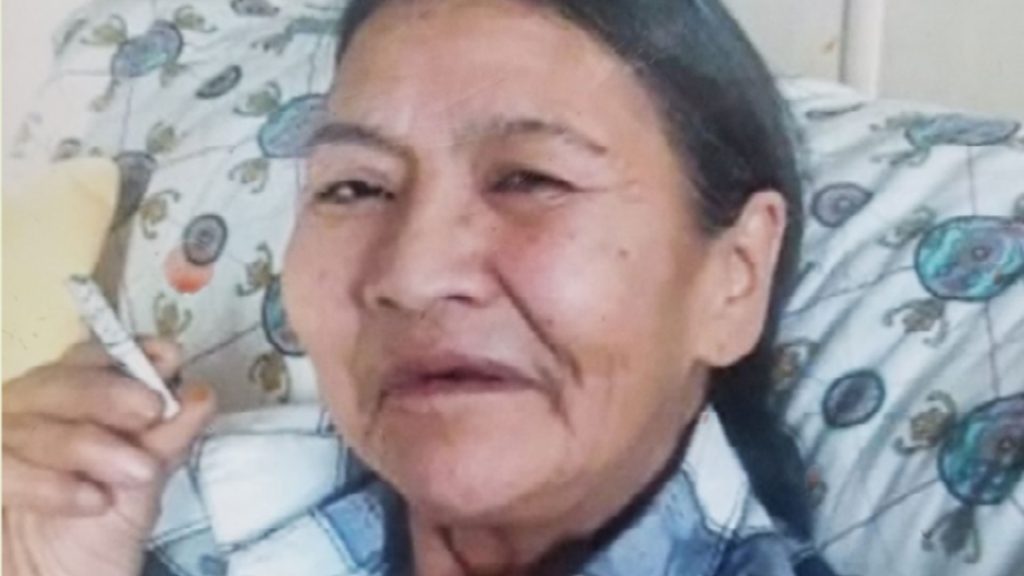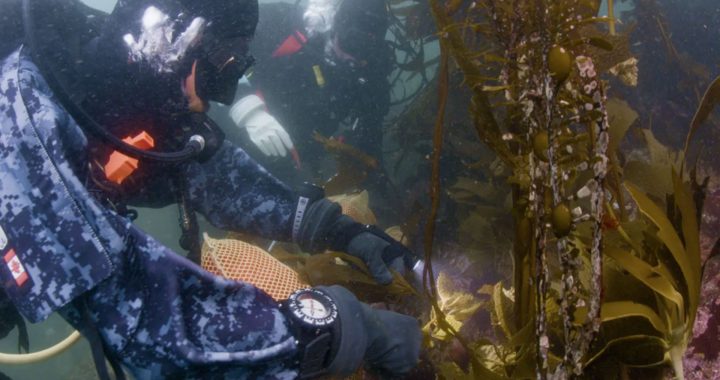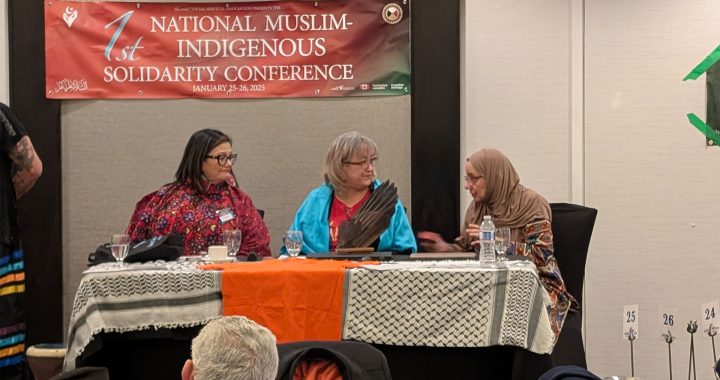
A photo of Mary Ann Ollie before her death. Photo: Yukon RCMP
A Yukon Supreme Court Judge has delayed sentencing for the man who pleaded guilty to the 2019 manslaughter of Kaska woman Mary Ann Ollie.
On Friday, Judge David Gates said he wanted more information regarding the joint submission asking for 9.5 years.
A joint submission is when both the Crown and the offender’s lawyer agree on the sentence put forward to a judge, typically when the accused pleads guilty or in exchange for a guilty plea.
Philip Atkinson, 66, a Kaska man who is a member of the Ross River Dena Council (RRDC), was originally charged with first-degree murder in the death of Ollie on Sept. 16, 2020.
He pleaded guilty to the lesser charge of manslaughter on Oct. 12 as part of a plea bargain.
During a two-day sentencing on Dec. 5 and 6, Crown lawyers William McDiarmid and Adam Halliday and defence lawyer Jennifer Cunningham asked that in addition to the sentence, Atkinson receive a credit of one-and-a-half days for his time spent in pre-trial custody, totaling approximately 4.8 years.
He would also be subject to a DNA order and weapons prohibition.
McDiarmid noted if the submission is accepted, it would be one of the highest manslaughter sentences in the territory.
But Gates said he wasn’t prepared to grant an immediate ruling, noting the seriousness of the case, as well as the fact in his role as a trial judge he is required to have all relevant facts before accepting or rejecting the submission.
He explained how he felt the information provided to him on Atkinson’s personal and criminal background wasn’t extensive enough.
That lack of information, he said, created “uncertainty” and that an “adequate record” from the Crown and defence would be required before issuing a ruling.
“I very, very much regret the further delay created by my decisions,” he relayed to the courtroom.
The judge ordered both parties to provide him with more background on Atkinson.
While Cunningham presented Gladue factors during sentencing, Gates requested an actual Gladue report be filed.
He also ordered the Crown to review Atkinson’s lengthy criminal record, which includes 12 convictions of assault, to see if any of the incidents involved women or girls.
“I recognize delay can be an enemy to justice,” he said. “While our justice system recognizes the need for speedy resolution, the court must take the appropriate time to do this right.”
‘It’s like she didn’t matter’
Ollie, who was also a member of RRDC, was last seen alive on July 31, 2019.
During the early hours of Aug. 1, she was found not breathing in Atkinson’s home. She was pronounced dead shortly after.
According to local media coverage, while Ollie’s death was not immediately considered suspicious, an autopsy report later found her body had signs of injury, including anorectal trauma that caused internal bleeding.
A pathologist said while he couldn’t determine how Ollie died, her combination of injuries, as well as the acute toxic effects of alcohol, likely played into her death.
Following a 13-month RCMP investigation, Atkinson was later charged in her death.
While he claimed he had no memory of the events that took place on July 31 and Aug. 1 2019, he did not dispute causing the traumatic anorectal injury that contributed to her death.

During the sentencing proceedings, the court heard a handful of victim impact statements read by a victim’s services worker on behalf Ollie’s family members.
Those closest to Ollie described her as a kind, gentle and caring person who also struggled with alcohol addiction. Many said her death had deeply traumatized her loved ones and community.
The statements described how some of Ollie’s family members had turned to alcohol to cope with her death. Others expressed anger at the RCMP for initially failing to recognize her death as a homicide.
“It’s like she didn’t matter until the coroner said it was a suspicious death,” one said. “Once again, if you’re a First Nations woman and a person who drinks it seems like you don’t matter.”
A statement read by the Liard Aboriginal Women’s Society noted Ollie’s death caused many Kaska women living in the small community of 355 people to feel scared and unsafe.
Sentence pending
While explaining the reasoning behind the proposed sentence, McDiarmid said mitigating factors include Atkinson’s decision to plead guilty, which spared vulnerable witnesses struggling with alcohol addiction from being exposed to disturbing details of the case.
As for aggravating factors, McDiarmid pointed to Atkinson’s multiple prior convictions of assault dating back to the 1970s, including two previous spousal assaults.
Cunningham further noted Ollie was a vulnerable person because she was female, Indigenous, struggled with addiction and was a residential school survivor.
While providing Atkinson’s family history to the court, she described how he was taken from his family who were living in the bush and sent to residential school where he experienced physical, emotional and sexual abuse by staff and students.
His residential school experience, she said, caused “lifelong impacts,” leading him to turn to alcohol at age 13.
Cunningham also noted Atkinson’s poor health caused by alcohol addiction, as well as the fact he suffers from memory loss and cognitive disabilities.
While speaking about rehabilitation, she said Atkinson doesn’t plan to drink again and that he’s working with psychiatrists to deal with his trauma, as well as pursuing First Nation’s cultural activities in an effort to heal.
The sentencing has been tentatively delayed until Jan. 23, 2024.










